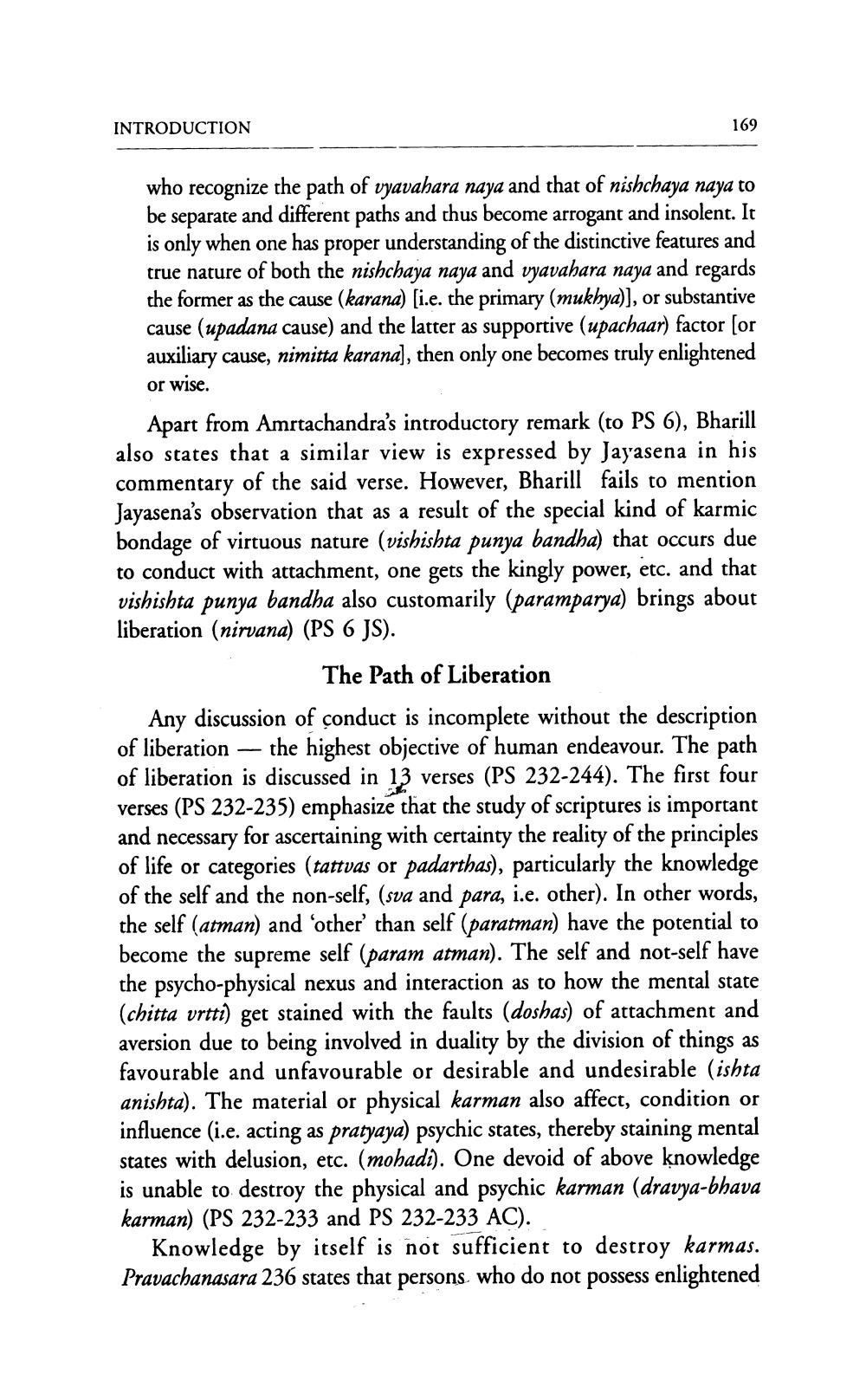________________
INTRODUCTION
169
who recognize the path of vyavahara naya and that of nishchaya naya to be separate and different paths and thus become arrogant and insolent. It is only when one has proper understanding of the distinctive features and true nature of both the nishchaya naya and vyavahara naya and regards the former as the cause (karana) [i.e. the primary (mukhya)], or substantive cause (upadana cause) and the latter as supportive (upachaar) factor (or auxiliary cause, nimitta karana], then only one becomes truly enlightened or wise.
Apart from Amrtachandra's introductory remark (to PS 6), Bharill also states that a similar view is expressed by Jayasena in his commentary of the said verse. However, Bharill fails to mention Jayasena's observation that as a result of the special kind of karmic bondage of virtuous nature (vishishta punya bandha) that occurs due to conduct with attachment, one gets the kingly power, etc. and that vishishta punya bandha also customarily (paramparya) brings about liberation (nirvana) (PS 6 JS).
The Path of Liberation Any discussion of conduct is incomplete without the description of liberation — the highest objective of human endeavour. The path of liberation is discussed in 13 verses (PS 232-244). The first four verses (PS 232-235) emphasize that the study of scriptures is important and necessary for ascertaining with certainty the reality of the principles of life or categories (tattvas or padarthas), particularly the knowledge of the self and the non-self, (sva and para, i.e. other). In other words, the self (atman) and other than self (paratman) have the potential to become the supreme self (param atman). The self and not-self have the psycho-physical nexus and interaction as to how the mental state (chitta vrtti) get stained with the faults (doshas) of attachment and aversion due to being involved in duality by the division of things as favourable and unfavourable or desirable and undesirable (ishta anishta). The material or physical karman also affect, condition or influence (i.e. acting as pratyaya) psychic states, thereby staining mental states with delusion, etc. (mohadi). One devoid of above knowledge is unable to destroy the physical and psychic karman (dravya-bhava karman) (PS 232-233 and PS 232-233 AC).
Knowledge by itself is not sufficient to destroy karmas. Pravachanasara 236 states that persons who do not possess enlightened




